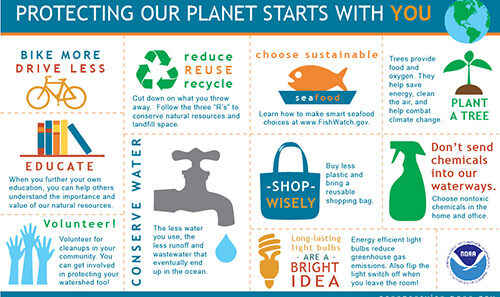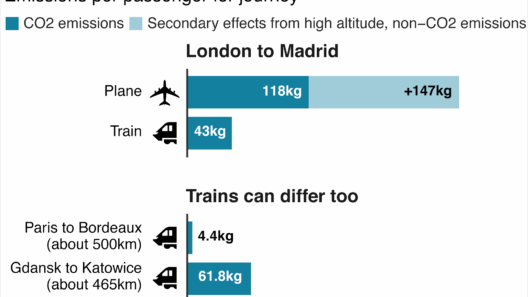In an era where the planet’s health is on the precipice of disaster, the discourse surrounding recycling and its impact on global warming takes on paramount significance. At first glance, the relationship between our trash and climate change may seem tenuous at best; however, upon delving deeper, a compelling narrative emerges. Can simple recycling initiatives mitigate the ramifications of global warming? The answer lies not only in the hard statistics but in the shift in cultural paradigms and individual behaviors.
To appreciate the gravity of recycling’s role in combating climate change, one must understand the underlying mechanisms of global warming. The Earth’s atmosphere is afflicted by an excess of greenhouse gases, primarily carbon dioxide (CO2) and methane (CH4), which stem from fossil fuel combustion, deforestation, and waste decomposition. These gases trap heat in our atmosphere, leading to a gradual rise in global temperatures, with palpable consequences such as extreme weather events, rising sea levels, and biodiversity loss.
Each stage of waste management—production, consumption, and disposal—contributes to this growing crisis. Manufacturing processes are often energy-intensive, consuming vast quantities of fossil fuels and releasing copious amounts of greenhouse gases. Landfills, a common endpoint for our discarded materials, are notorious for emitting methane, a gas that is significantly more potent than CO2 in terms of its heat-trapping ability.
Recycling presents itself as a beacon of hope in this context. By diverting waste from landfills and reprocessing materials, the recycling process effectively conserves energy and reduces greenhouse gas emissions. For instance, producing recycled aluminum consumes approximately 95% less energy than producing new aluminum from raw bauxite ore. Furthermore, it also minimizes the harmful environmental impacts associated with mining, which often leads to habitat destruction and pollution.
Nonetheless, it is crucial to frame recycling not merely as an end but as a step within a broader strategy for sustainability. Fostering a circular economy, where products are designed for reuse and materials are perpetually cycled back into production, is pivotal. This paradigm shift not only encourages recycling but also emphasizes reduction and rethinking consumption patterns. The more efficiently we use resources, the less waste is generated, ultimately minimizing our carbon footprint.
However, the efficacy of recycling hinges on proper systems and individual participation. In many regions, access to recycling programs is inconsistent. Promoting awareness about what can and cannot be recycled, along with reducing contamination rates in recycling bins, is essential. When recyclable materials end up in landfills due to lack of knowledge or infrastructure, the potential benefits are thwarted. Thus, the responsibility falls upon individuals, communities, and policymakers alike to enhance recycling education and accessibility.
Another compelling aspect of recycling and waste reduction is the burgeoning sector of e-waste. With technological advancements and an insatiable appetite for the latest gadgets, electronic waste has surged. This category of waste poses unique environmental challenges. Discarded electronics often contain toxic substances such as lead and cadmium, which can leach into soil and waterways, exacerbating both pollution and climate change issues. Therefore, responsible recycling of e-waste not only prevents hazardous materials from entering the environment but also recovers valuable resources, promoting a more sustainable lifecycle for technology.
The complexities of recycling reveal the necessity of innovation and investment in technology. Advances in recycling technologies, such as pyrolysis for plastics or enhanced sorting systems, promise to further minimize emissions. These innovations can revolutionize how materials are processed, making the recycling of even the most challenging materials feasible. This quest for technology mirrors the urgency with which climate activists advocate for reduced emissions; both require an amalgamation of commitment, knowledge, and action.
Yet, amidst this extensive discussion, one must not overlook the collective power of grassroots movements and community engagement. Local initiatives can catalyze significant change in recycling habits. Community workshops that educate citizens about composting, for example, not only promote waste reduction but also increase awareness of the connection between waste management and climate change. Such grassroots efforts pave the way for a culture of sustainability, where recycling is championed as a moral imperative rather than a simple chore.
Beyond just recycling, individuals are urged to explore ways to minimize their overall consumption. Adopting a minimalist lifestyle, prioritizing the purchase of second-hand items, and supporting businesses that prioritize sustainability are small yet impactful actions. These choices resonate with a growing cohort of conscientious consumers whose aligned values can spur corporations to adopt greener practices. The shift towards prioritizing sustainability at every level of the economy holds the potential to reshape our societal infrastructure.
Ultimately, the nexus between recycling and global warming beckons a multifaceted approach. Each individual’s actions aggregate into a collective impact capable of reshaping our environmental destiny. As we recalibrate societal norms around consumption and waste, a more profound understanding of recycling as a pivotal element in the fight against climate change materializes. By engaging with the recycling ethos and expanding it into our daily lives, we can unearth a path forward that not only aims to mitigate the effects of global warming but actively paves the way for a more sustainable and regenerative future.
In closing, reconceptualizing our relationship with trash—as not merely waste but a resource with immense potential—offers a profound opportunity to tackle one of the most pressing challenges of our time. The promise of recycling extends far beyond the confines of trash bins; it is a clarion call for systemic change, collective resilience, and a renewed commitment to preserve our planet for future generations.




